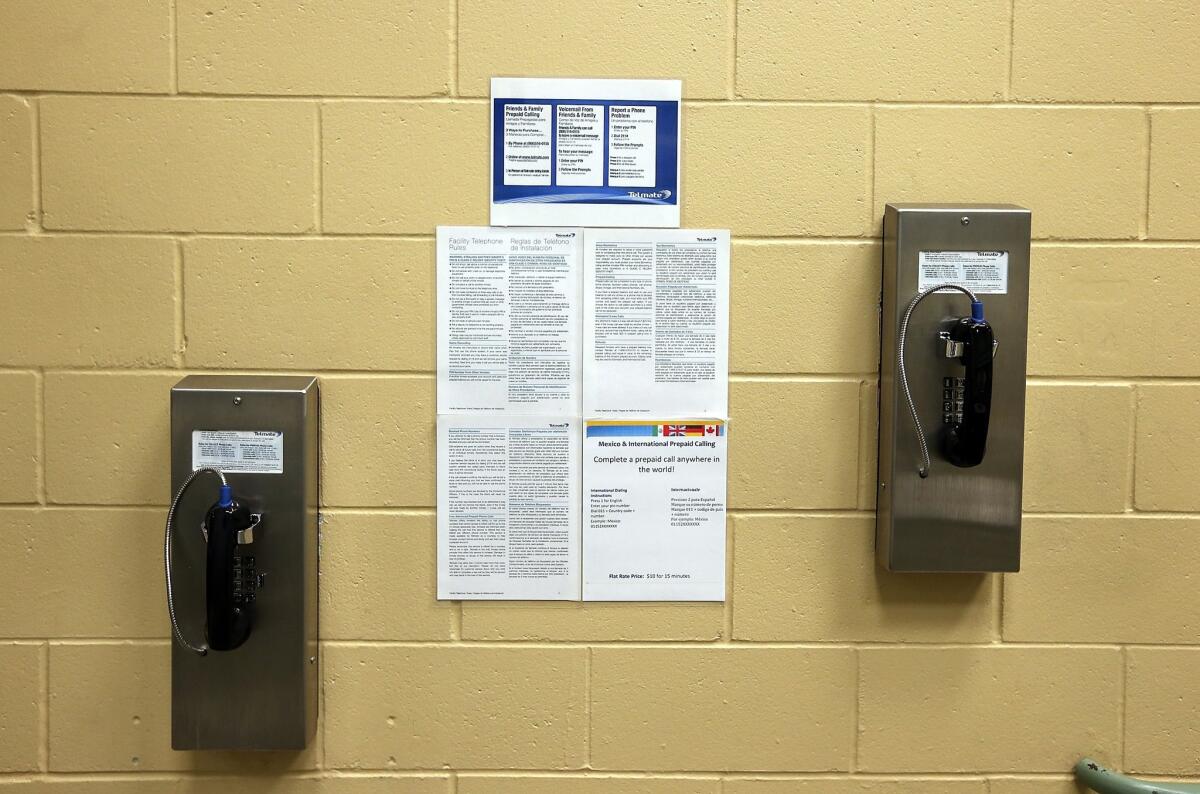After emotional hearing, FCC votes to lower inmate phone rates

After a decade of lobbying by prisoner advocacy groups, the Federal Communications Commission on Friday voted to lower inmate phone call rates.
The action seeks to address the exorbitant rates for phone calls made by inmates in jails and prisons across the country. A 15-minute phone call can cost $17, more than 10 times the average per-minute rate for typical consumer plans.
The proposal approved Friday will reduce the cost of phone calls made by prison inmates to a cap of 25 cents a minute for a collect call and 21 cents a minute for a debit or prepaid call.
“It took 10 years, but we are glad that the Commission will secure just and reasonable rates for everyone to protect Americans from unreasonable discrimination,” said Gigi B. Sohn, president of Public Knowledge, a Washington, D.C.-based consumer rights group.
Who works the longest? Jobs with the longest and shortest workdays
Many families of prison inmates paid exorbitant fees for phone calls compared with typical long-distance rates as two telephone companies hold virtual monopolies.
The prison phone market, which brings in $1.2 billion annually, is dominated by two little-known phone companies. Global Tel-Link, based in Atlanta, and Securus Technologies of Dallas, both backed by private equity firms, make up more than 80% of the market, according to Standard & Poor’s.
The result is a patchwork of contracts across states and counties, meaning a 15-minute phone call with Securus can cost $17.30 from an Alaska prison or $1.75 from Missouri, one of eight states that have banned commissions.
The companies operate by competing for exclusive rights to serve each jurisdiction, rights often won by promising the highest percentage in commissions. Hungry for revenue, state prisons and county jails have increasingly awarded contracts to companies that can promise more cash. In some cases, commissions account for as much as 60% of the cost of a phone call.
The at-times emotional hearing Friday included testimony from Bethany Fraser, whose children’s father is currently incarcerated.
“Under the current rate system, my family struggles to maintain ties,” Fraser told the commission.
FCC Commissioner Ajit Pai, who supported lowering inmate phone rates under a different proposal, dissented Friday.
Pai had previously proposed a different cap and said that the approved proposal would essentially make the FCC a micromanager and enforcement would be difficult.
The new rules, he said, “may not withstand a court challenge.”
Phone companies oppose the changes, arguing they would make an already-competitive market even tougher on their bottom lines.
The companies insist it simply costs more to provide inmate phone services, which require security features such as call screening, restricting phone numbers and blocking three-way calls.
ALSO:
Obama to sign student loan deal
New York’s biggest financial winners -- cabdrivers
Cleveland Fed head to step down, adding to central bank turnover
ricardo.lopez@latimes.com








